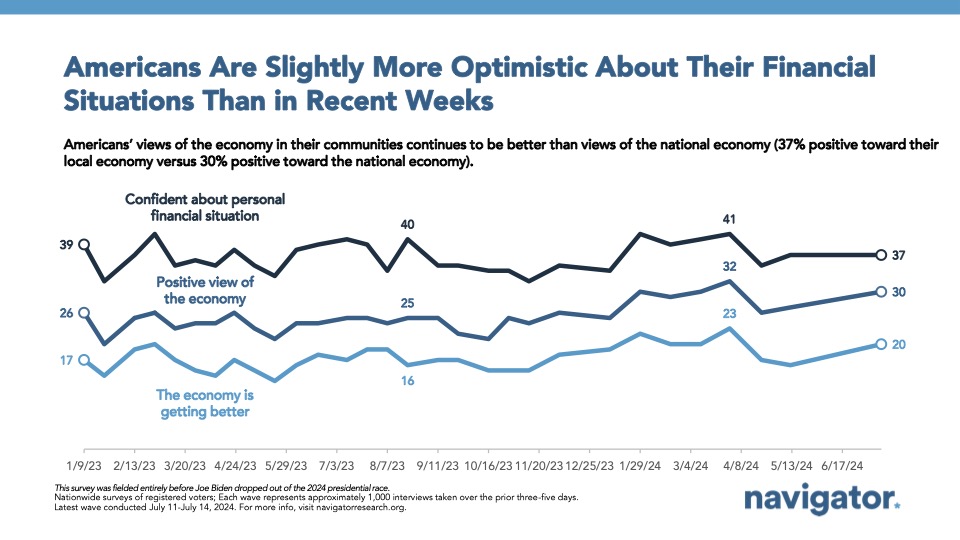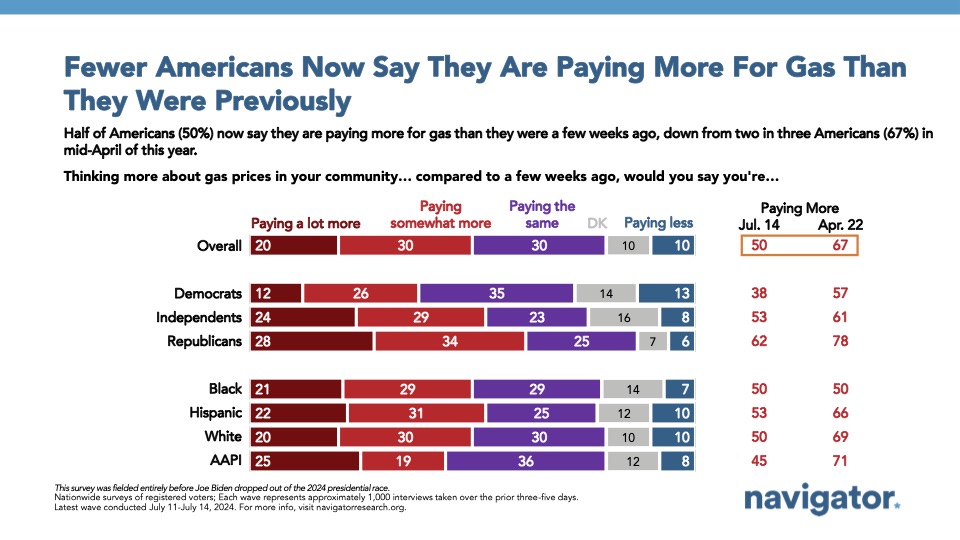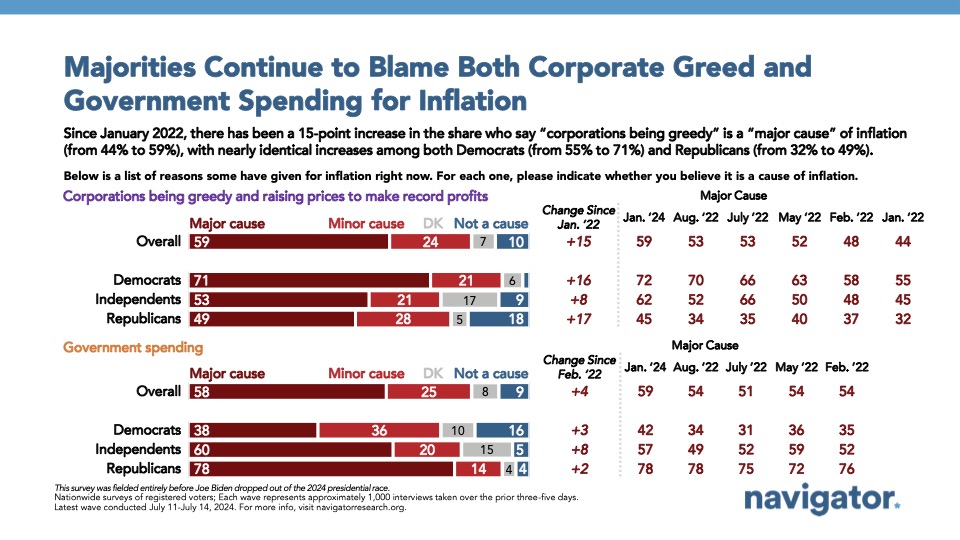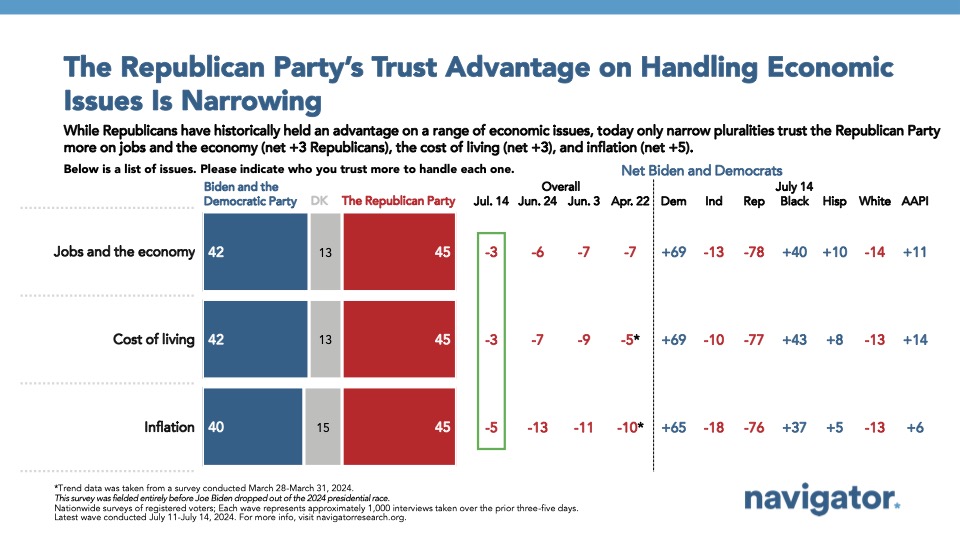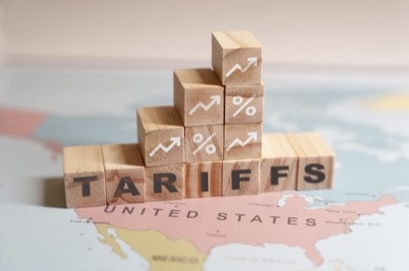Poll: The Economy
This Navigator Research report contains polling data on perceptions of the national economy and personal financial situations, including who Americans feel is most to blame for inflation and which party Americans trust to handle the issues of inflation, cost of living, and jobs and the economy.
While the vast majority of Americans continue to rate the economy negatively, there has been a slight uptick in optimism about their economic outlook compared to recent weeks.
By a 38-point margin, most Americans rate the economy negatively (30 percent positive – 68 percent negative), which is a net 8-point improvement from April 2022 (net -46; 26 percent positive – 72 percent negative). Americans remain slightly more optimistic about their local economy than the U.S. economy, consistent with ratings in April (net -23; 37 percent positive – 60 percent negative). Moreover, nearly two in five Americans feel confident in their personal financial situation over the next few months, a net 5-point increase in the last three months (net -22; 37 percent confident – 59 percent uneasy).
- Americans living in households earning more than $100,000 per year are significantly more optimistic, including only being 11 points underwater in their perception of the U.S. economy (44 percent positive – 55 percent negative), being evenly split on how the economy is doing in their local community (net +1; 50 percent positive – 49 percent negative), and being net positive about their personal financial situation (net +8; 53 percent confident – 45 percent uneasy). By contrast, those living in households making less than $50,000 a year are more pessimistic than the country overall, including a net -45 rating on the national U.S. economy, a net -32 rating on the economy in their local community, and a net -33 rating about their personal financial situation.
- Another indicator of increasing optimism is how much Americans are reporting paying for gas in recent weeks: the share of Americans reporting paying more for gas has declined by 17 points since late June from 67 percent then to 50 percent now. The only region of the country where a majority feel they are paying more for gas than in recent weeks is in the South (57 percent).
Three in five Americans view “corporations being greedy and raising prices to make record profits” as a “major” cause of inflation, up 15 points since early 2022.
83 percent of Americans blame corporate greed as a driver of inflation, with nearly three in five who feel corporate greed is a “major” contributor to inflation (59 percent). This sentiment is felt across partisanship, including more than nine in ten Democrats (92 percent) and about three in four of both Republicans (77 percent) and independents (75 percent). Corporate greed is on par with the share who believe government spending is a driver of inflation (82 percent; 58 percent say it is a “major” cause of inflation). The share blaming government spending as a “major” cause of inflation has only increased by 4 points since early 2022.
The gap in party trust between the Democratic Party and the Republican Party on handling the issues of inflation, jobs and the economy, and cost of living are narrowing.
By a 5-point margin, more Americans trust Republicans to handle inflation (40 percent the Democratic Party – 45 percent the Republican Party), down from a 10-point Republican trust advantage in March (38 percent the Democratic Party – 48 percent the Republican Party). Similarly, Democrats have closed the gap on party trust in handling the issue of jobs and the economy (net -3; 42 percent the Democratic Party – 45 percent the Republican Party) compared to early June of this year (net -7; 41 percent the Democratic Party – 48 percent the Republican Party), and Americans trust the Republican Party more to handle cost of living by just 3 points (42 percent the Democratic Party – 45 percent the Republican Party).
- The Democratic Party retains sizeable party trust advantages over the Republican Party on the issues of health care (net +16; 51 percent the Democratic Party – 35 percent Republicans, including a net +11 advantage among independents) and Social Security and Medicare (net +13; 49 percent the Democratic Party – 36 percent the Republican Party, including a net +9 advantage among independents).
About The Study
Global Strategy Group conducted a public opinion survey among a sample of 1,000 registered voters from July 11-July 14, 2024. 100 additional interviews were conducted among Hispanic voters. 79 additional interviews were conducted among Asian American and Pacific Islander voters. 100 additional interviews were conducted among African American voters. 100 additional interviews were conducted among independent voters. The survey was conducted online, recruiting respondents from an opt-in online panel vendor. Respondents were verified against a voter file and special care was taken to ensure the demographic composition of our sample matched that of the national registered voter population across a variety of demographic variables. The margin of error for the full sample at the 95 percent level of confidence is +/- 3.1 percentage points. The margin for error for subgroups varies and is higher.

